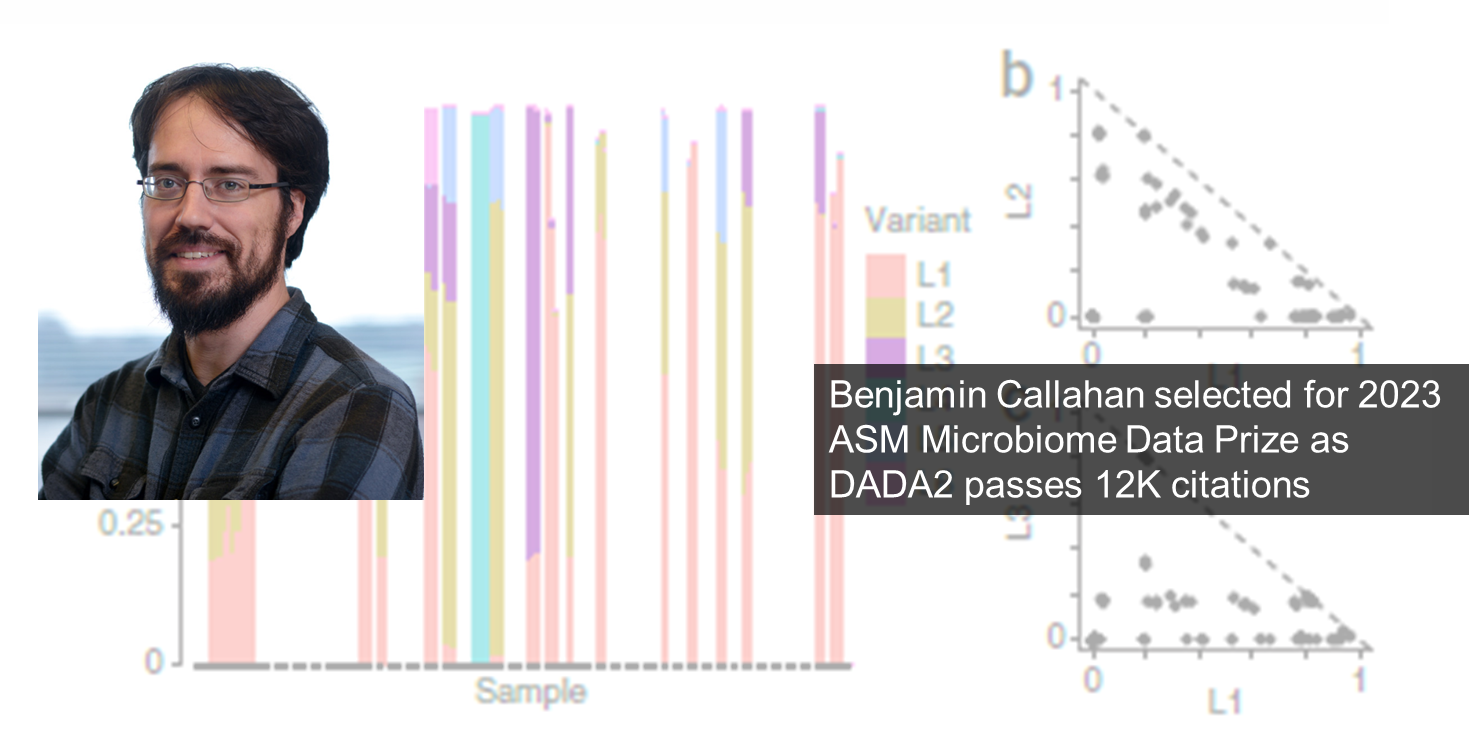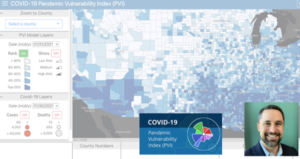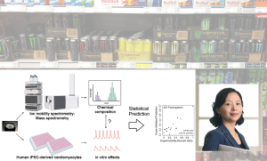Benjamin Callahan, BRC member and Associate Professor of Department of Population Health and Pathobiology, has been selected to receive the 2023 Microbiome Data Prize by the American Society for Microbiology. Dr. Callahan is widely known for the development of the DADA2 package for sample inference from amplicon data, which has received over 12.000 citations. More generally, he has been instrumental in developing standard and reproducible workflows for handling metagenomic data.
Callahan joined the faculty of North Carolina State University in Jan. 2017 as a Chancellor’s Faculty Excellence Program cluster hire in microbiomes and complex microbial communities. Callahan’s research program at N.C. State focuses on microbomes and the high-throughput methods used to characterize them, in particular marker-gene and metagenomic sequencing. He develops new statistical and bioinformatic methods to better characterize microbial communities from high-throughput biological data. Callahan uses those methods to study important problems, such as the relationship between the maternal microbiome and preterm birth and the barriers to reproducibility and interoperability between microbiome measurements made in different laboratories. Callahan and his group also develop and support software used by the wider microbiome research community in a wide variety of applications.
Additional details about DADA2 and Dr. Callahan’s research are described here: https://asm.org/Articles/2022/October/Advancing-Microbiome-Data-Analysis-with-Benjamin-C




